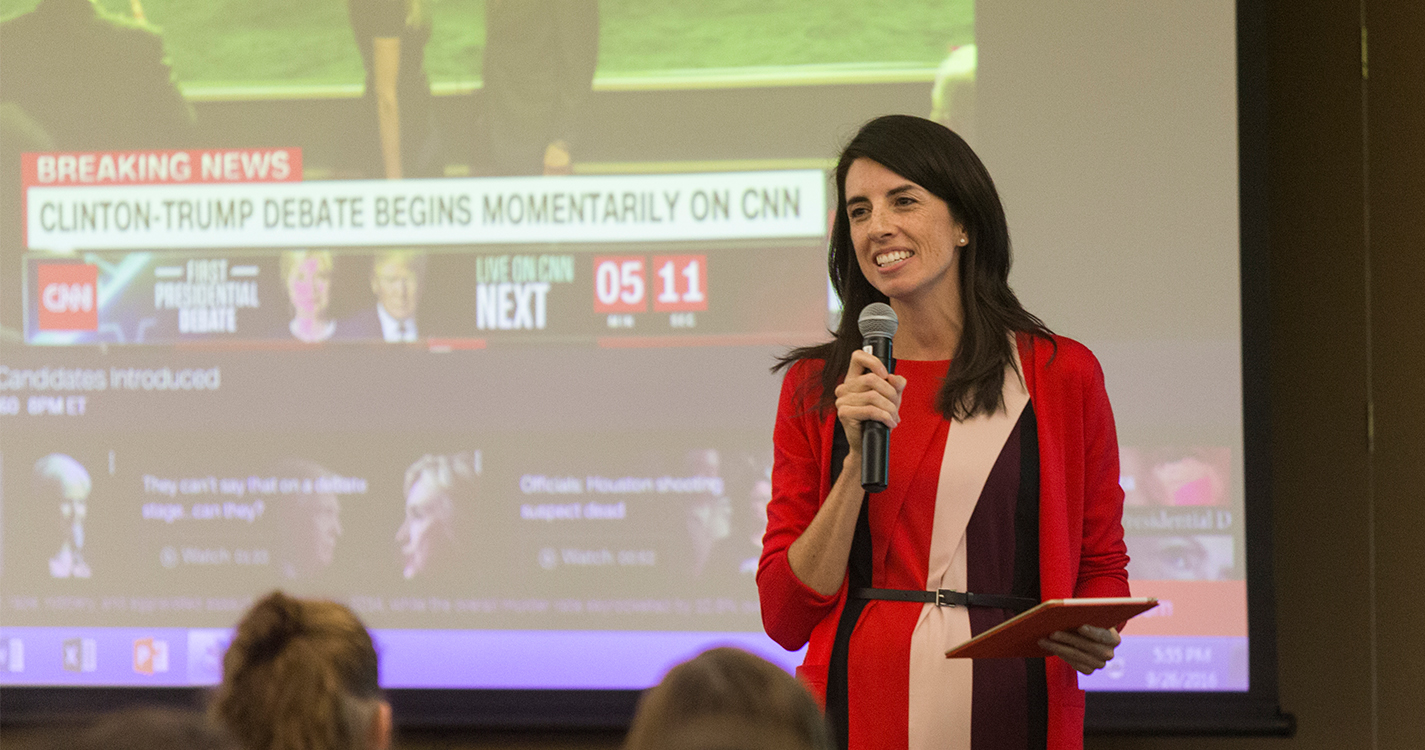Willamette’s Civic Communication and Media (CCM) department will be used as a model of civic learning for other universities nationwide.
The Association of American Colleges and Universities recently chose the department as one of 22 others that exemplify how to make civic learning and democratic engagement an expectation for students of any given discipline.
But Willamette’s department has been singled out for an even greater honor — it’s among nine departments to be featured in the January issue of “Peer Review,” the AACU’s quarterly publication on emerging trends and key debates in undergraduate education. Faculty members penned articles that explain their approach to civic learning, which gives students the knowledge, skills and experience to address issues of public concern in their communities.
An AACU report revealed most civic study occurs in the first two years of students’ academic careers then drops off as their major becomes a bigger focus. To counteract the decline, the report suggests colleges and universities consider “the best way to infuse civic learning outcomes progressively across the major.”
In Willamette’s CCM major, students receive a strong foundation in civic communication through 200-level theory and method courses, flexible junior-level elective courses and self-designed capstone projects. But Associate Professor Cindy Koenig Richards, CCM’s founding chair, says students also participate in projects that take advantage of Willamette’s location across from the state capitol and give them the opportunity to “transform knowledge into action.”
Willamette faculty redesigned the program from its former incarnation as the rhetoric and media studies major in 2014. Richards says they responded in part to student hunger for “more connections between theory and practice, and also to engage contemporary issues through the work they were doing.”
Students of all majors can tackle CCM projects such as DebateWatch — created by Richards for students to lead small-group discussions after U.S. presidential debates — and hold internships with organizations ranging from Marion Polk Food Share to the Portland Trailblazers.
This year, students have explored the inequities of environmental privilege and advocated for climate and energy justice through La Chispa, “The Salem Spark,” led by Assistant Professor Catalina de Onis. Undergraduates develop workshops with Willamette Academy students and a weekly radio segment on KMUZ community radio.
In a College Colloquium class taught by Assistant Professor Maegan Parker Brooks last year, some students learned about Emmett Till — a teen whose 1955 death in Mississippi became a catalyst for the civil rights movement — and some of Oregon’s first pioneers. Students in Richards’ class, “Citizenship and the Public Sphere,” analyzed the role of Twitter in the 2015 U.S. presidential campaign and produced a book that was presented at a national conference in 2017.
While these efforts led to Willamette’s selection by AACU, national recognition for CCM faculty members isn’t new.
Last month, CCM Assistant Professor Vincent Pham won an award from the National Communication Association for his mentoring, writing and his capacity to think across disciplines in theoretically innovative ways. Several years ago, through a $3 million Open Society Foundation grant obtained by Robert Trapp, CCM professor and director of the university’s Debate Union, the university worked with hundreds of Chinese universities and students on public speaking, argumentation and debate.
Senior Vice President for Academic and Student Affairs Carol Long says Willamette is honored by the recognition, noting that. CCM’s “innovative” program makes “civic learning more prominent in Willamette’s educational program.”

